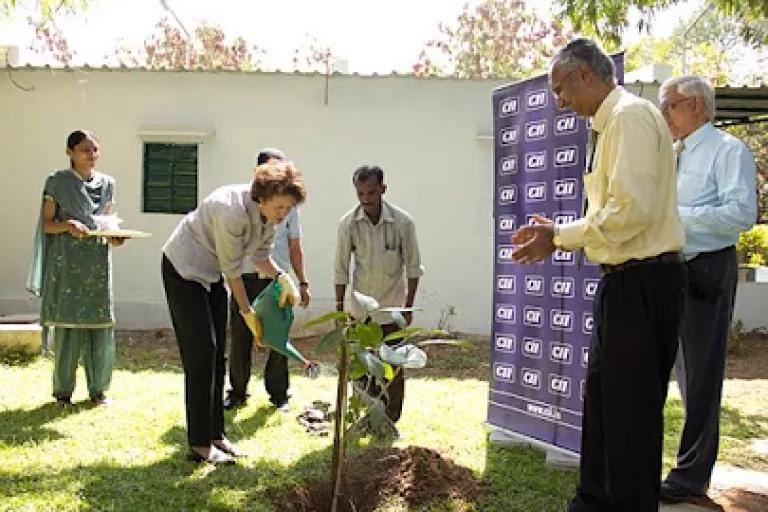
Hyderabad has turned out to be the perfect place to begin my first trip to India. This four-hundred-year-old city is rich in cultural history, but its sleek, gleaming IT sector points the way to India’s future.
Hyderabad was one of the first cities in the world to develop a special economic zone, and the scale of growth is extraordinary. High-tech corporate campuses and office parks dot the horizon, especially in the area known as Hi-Tech City. Yet many modern office buildings were constructed without energy efficiency in mind, and millions of dollars and thousands of kilowatts of electricity are wasted each year as a result.
Luckily, city and business leaders want to change that, and for the past two years, NRDC’s India Initiative and our partners at the Administrative Staff College of India have been helping to make Hyderabad’s growth as green and efficient as possible.
On my first morning here, we went to the Godrej Green Business Centre built by the Confederation of Indian Industries. Opening in 2004, it was the first LEED-certified platinum green building outside the United States. I had the honor of planting a tree in the building’s garden, and I got the chance to hear from some of the leaders in Hyderabad’s efficiency efforts.

Like much of India, Hyderabad presents an exciting opportunity. Two-thirds of the commercial and high-rise residential structures that will exist in 2030 have not been built yet. Experts agree it is cheaper and easier to build efficiency into new construction than it to pay for retrofits later.
Indeed, NRDC’s David Goldstein says that you can design buildings that reduce energy use by 50 percent at no additional cost if you incorporate efficient features from the beginning.
Hyderabad is trying to encourage this kind of green building by weaving efficiency standards into building codes. NRDC and our partners are working with city officials, technical experts, real estate groups, and banks to fully implement those codes.
Later in the day, I had the opportunity to talk with the Ajit Ranjankar, the dean of the Indian School of Business. The ISB is ranked among the top 20 business schools in the world, and it was fascinating to hear Dean Rangnekar’s refreshing take on the economic and social value of environmental protection. He believes strongly that Indian businesses have to embrace sustainability and clean technology and demonstrate how these models can be profitable as well as beneficial.
At a dinner that evening hosted by the Administrative Staff College of India, I met several leaders who are already providing those models. ASCI is a policy think tank, research institute, and training facility for professional managers from the public and private sectors in India. Under the leadership of Director Chary, ASCI’s Centre for Energy, Environment, Urban Governance, and Infrastructure Development is working with NRDC to help Hyderabad grow smart from the smart.